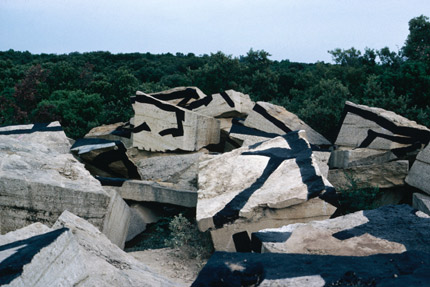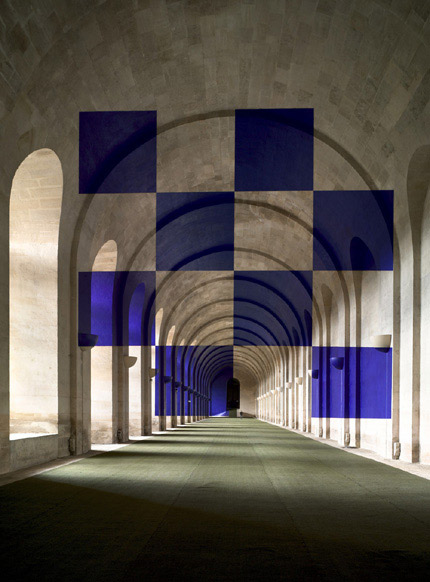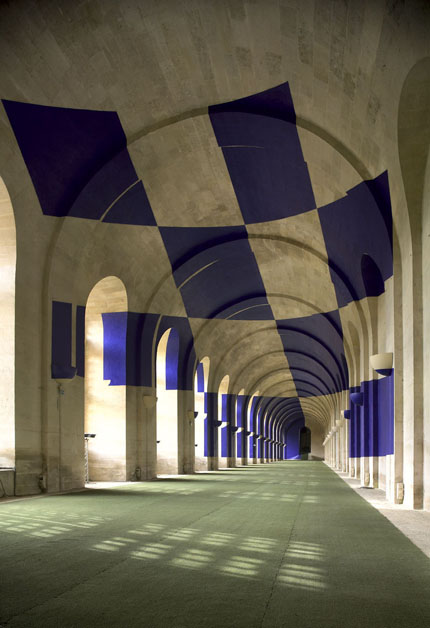Felice Varini
Zigzag entre le cercle at la tour (Niigata, Japan), 2009
Castillon du Gard n.1, 1981
2006 Huit carres (Versailles, France), 2006
Felice Varini was one of the first artist models I chose for myself, (back in the days where artist models were the way ideas came about) in my sixth form sculpture class. I was drawn to his disregard for reality, treating the three dimensional landscape as a blank canvas, and the masterful illusions he created. The tangible illustration of this fictional plane place on top of the world as I knew it impressed me. I was always more interested in the ways the work changed once one abandons the 'vantage point'. The spot where Varini pulls the strings, and seemingly halts movement, slows time and flattens space. (for some reason, probably due to photographs, I always imagine viewing the works as being a solitary endeavour - only one person can be at the precise vantage point at one time, and the view is never hindered by the presence of living things.) And instantly, one is shown The 'ANSWER'. There, laid out bare and perfectly formed, waiting to be accepted, when you are in 'the right place at the right time'. In that respect, apart from their unfailing apparant solidity, the works are similar to mirages.
The works 'off vantage point' seem so much more dynamic, full of diagonal lines of motion and distortion. Perhaps this reflects my natural view of the world as a whole, a place full of clues, hints, red herrings and false trails, smaller pieces of information amassing to create something larger than the individual scraps themselves, continuously linked together. One cannot be directed to a static spot, providing the end and not the means, offering only the solution.
I like to reside within the fiction and the reality, so then it becomes up to me, and my existing within the space his works occupy, as to whether I join the illusion. Instead of standing still, I would walk around the works in a semi-circle, crossing the 'vantage point' somewhere in the middle.
I think of one of my favourite quotes when looking at Varini's work, from Dennis Potter's 1987 masterpiece The Singing Detective:
"All solutions and no clues, that's what the dumb heads want. That's what the bloody novel 'he said, she said, descriptions of the sky..., I'd rather it was the other way round, all clues no solutions, that's the way things really are. Plenty of clues, no solutions."




